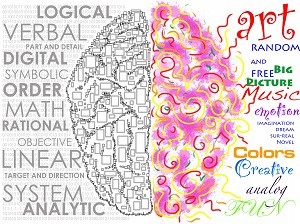Tag Archives: fuzzy logic
23 Jun Information Transformation

Information Exchange and Transformation Knowledge does the most good when shared. Knowledge that gets lodged in one place may not be particularly useful to many people. But moving digital information from place to place has its dangers. Automating data movement can introduce security or confidentiality issues, data duplication challenges, as well as raising the specter of […]
16 Jun Genetic Cross-Pollination

Cross Pollination Many approaches exist for simulating intelligent behavior on computers. In the past, the most popular approach was to focus on developing a technique and applying it to a problem. Most basic research has focused on single paradigms and their properties. Sometimes, however, in domains where multiple approaches to problem solving are possible, some […]
05 Jun Intelligent Traveling Salesmen

Another Sample Problem Several specific reasoning or inference problems have provided fodder for AI textbooks and experiments. One of these is the traveling salesman problem (Get an explanation and an example applet here): Given a traveling salesman who must get to x number of cities, find the shortest route the salesman can travel to reach […]
02 Jun Framing Formal Logic

Formal Logic Formal logic often uses set theory. Set theory uses existential (an assertion that something applies to some members of a set) and universal (a statement that applies to all members in a set) quantifiers. Despite the utility and noncommittal correctness of existential quantifiers, set operations using existential quantifiers are weaker then those using universal quantifiers. The […]
28 May Data and Modeling

Data modeling is essential in the early stages of any information system design. By moving toward a data-centered model, we can make our data, and our system, smarter. There are many data-modeling techniques, but we will focus on two for now: Entity Relationship Diagramming (ERD), and Object Role Modeling or object relational modeling (ORM). Entity […]
27 May Machine Components for Intelligence

If an abacus or a log and rope can be considered intelligent machines, then we can decompose their parts, possibly rearrange them, and get different kinds of intelligent machines. I know this is an extreme example of absurd reasoning. Let’s go from the opposite direction in the complexity spectrum. Can we use the human brain and its parts as […]
21 May Modeling After a Fashion

Perennial Image Problems Artificial Intelligence has an image problem. Yes, there are cybernetic characters like R2D2, C3P0 and Commander Data whom we love, but some products built using AI techniques have the dubious reputation of being useful but not entirely dependable. Think of songs sung about Sirius Cybernetics Teleporter products (see lyrics below). It is possible that […]
20 May Cybernetic Modeling for Smarty-Pants

Introduction Model railroads come in several scales: O, HO and N gauge enable hobbyists to model real-world objects in miniature using successively smaller standards. In N gauge it is possible to build an entire city in the basement. A good model photographed with still or motion pictures may be so realistic that viewers believe they are looking […]






